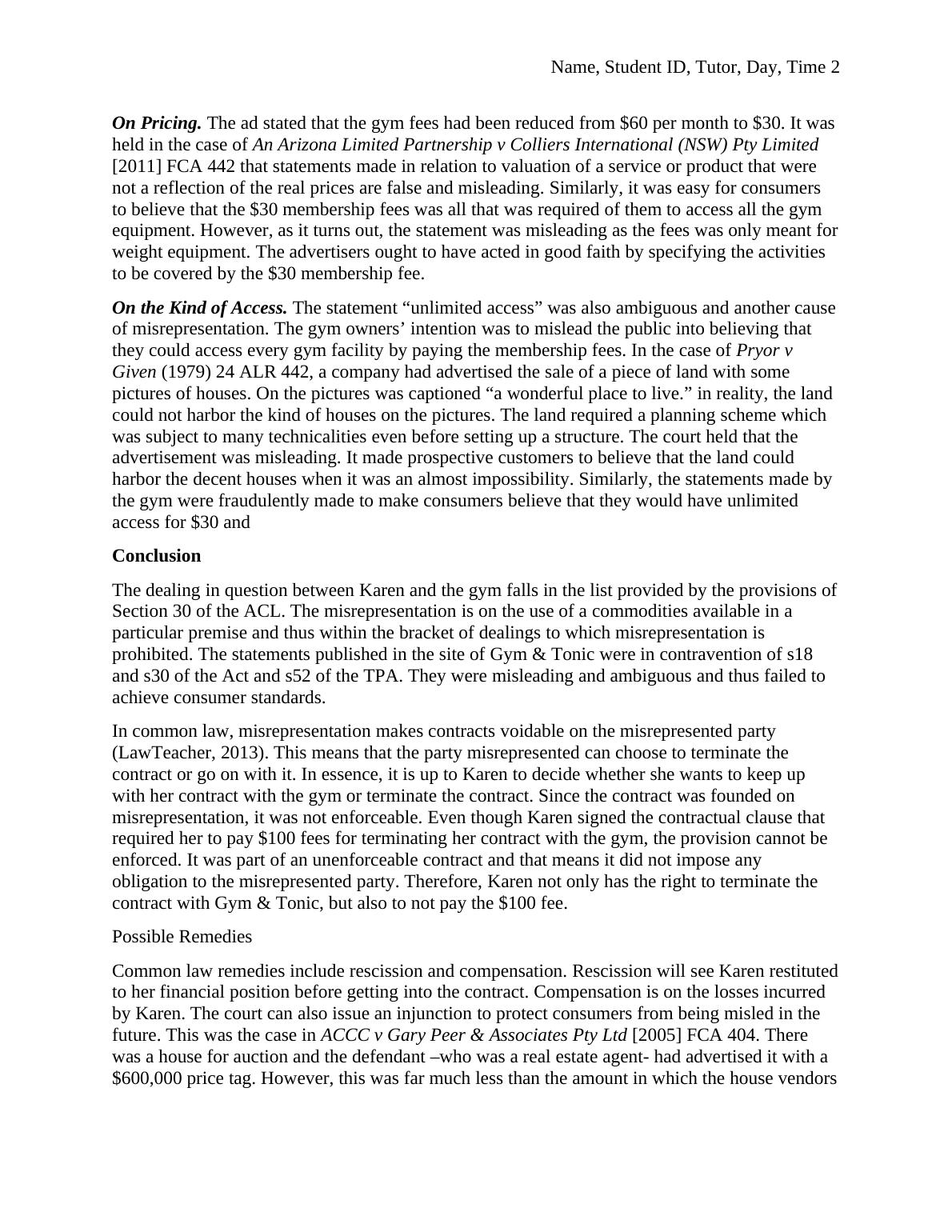Analysis of Karen's Contract Termination with Gym & Tonic
This assignment is a problem solving assignment for the course Introduction to Business Law. It consists of a Hypothetical ILAC Question and Short Response Questions, and is worth 30% of the total marks for the course. The due date for submission is 14 September 2018.
4 Pages1637 Words139 Views
Added on 2023-06-07
About This Document
This article analyzes whether Karen can terminate her contract with Gym & Tonic and if she is liable to pay the $100 fee. It examines the relevant laws, including Section 18 of the Australian Consumer Law and Section 52 of the Trade Practices Act, and applies them to the case. The article concludes that Karen has the right to terminate the contract and not pay the fee due to misrepresentation by Gym & Tonic. It also discusses possible remedies, including rescission and compensation.
Analysis of Karen's Contract Termination with Gym & Tonic
This assignment is a problem solving assignment for the course Introduction to Business Law. It consists of a Hypothetical ILAC Question and Short Response Questions, and is worth 30% of the total marks for the course. The due date for submission is 14 September 2018.
Added on 2023-06-07
ShareRelated Documents
End of preview
Want to access all the pages? Upload your documents or become a member.
Business Law: Contract Termination and Remedies for Misleading Conduct
|4
|1061
|228
Introduction to Business Law - ILAC Question and Short Response
|4
|877
|339
Legal Analysis of Misrepresentation and Native Title in Australia
|6
|2286
|337
Business Law: Misleading and Deceptive Conduct in Trade or Commerce
|6
|1060
|210
Legal Analysis of Karen's Contract Termination with Gym & Tonic
|5
|1127
|371
Fundamentals of Law Assignment
|6
|1268
|46


